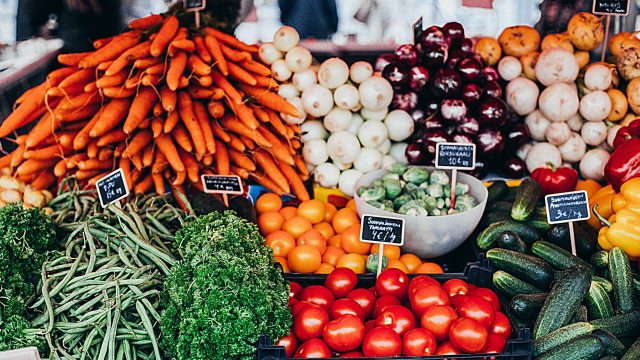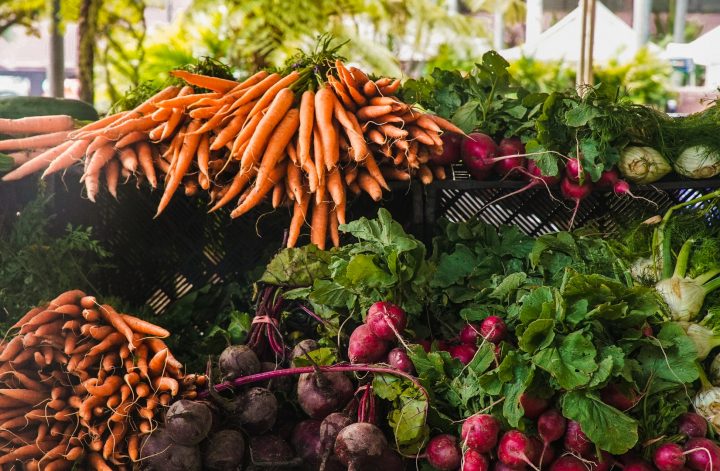10 Farmers Market Buying Guidelines
The simplest method to consume fresh, locally-grown produce is to shop at a farmer’s market. Knowing where the food comes from is simple because the grower is nearby, and you can ask them. However, the farmer’s market can feel overwhelming due to the abundance of choices and some uncommon fruit and vegetable species.
Some consumers leave the store with bags of random goods, letting half of them spoil in the crisper. Others come away from experience with just one bunch of carrots and a stomach full of samples, unsure what to purchase for this week’s dinners. Planning can make weekly trips to the farmers market enjoyable and all-week cooking simple.
Recognize the Seasons
When you arrive at the farmer’s market, you’ll know what kind of fruits and veggies to expect if you understand seasonal produce. Keep in mind that depending on the growing location you live in, seasonality and the things offered will vary.
Make a meal plan in advance.
Since you know what to expect at the farmer’s market, you can plan your meals and make appropriate purchases as you would at the grocery store. Make a list and include the quantities of each item you’ll require. Keep an open mind because the farmer’s market is subject to seasonality, and vendors can run out of something or not have it that week. A week without asparagus? Change it up with broccolini.
Bring some spare cash.
You must bring cash because it’s exceedingly uncommon for farmers’ market vendors to accept credit cards. Even though sellers often make changes, transactions will go faster if you have precise (or almost exact) changes. It will be simpler for you and the merchants if you bring a stack of ones and fives.
Take large bags.
Some farmer’s market vendors sell typically thin, fragile plastic bags that moan under the weight of any sizeable produce purchase. Bring your strong canvas or nylon bags to ensure that everything arrives home from the farmer’s market without spilling into your car’s sidewalk or interior. In particular, for heavy or bulky things, a backpack can ease the lugging.
If you frequently purchase large quantities, you might want to consider getting a wheeled cart or wagon (strollers work great for carrying fruits and veggies) so you can bring your bounty from the farmer’s market home all at once.
Companies that helped build and construct the farmer’s market such as professional contractors have purchased huge quantities of merchandise and grocery for their employees and their company which offer concrete in Macon, GA. We know buying in bulk, especially when feeding the masses can pay off, which is what so many people do at the market.
Go early
Immediately as they open or right before they close, markets typically have less traffic. There are exceptions to this rule, so experiment with visiting your market at various hours to determine when it’s ideal for you.
Arrive early at the farmer’s market for the best selection. The best products usually sell out first, and popular but limited ones occasionally do.
Go Late
Visit the farmers market late for the best discounts. Farmers and other sellers will occasionally provide discounts in the last hour rather than packing them back up and carrying them home. Be aware that some markets prohibit day-end discounts.
Be impulsive
Yes, planning your trip to the farmer’s market will help you do better. However, it would help if you allowed some wiggle room in case strawberries or zucchini blooms that you’ve never tried before show up in the market earlier than expected. Going to farmers’ markets and trying new foods is enjoyable.
When you purchase food at a farmers market, it is extremely fresh; thus, when you prepare it, let its natural taste come through. Simple preparations will allow the best product to shine.
Consult the Farmers
Ask the farmer about any fruits or vegetables you find at the farmer’s market that you are unfamiliar with. Most sellers are more than eager to provide detailed information about their goods, including how they are produced, where they come from, what they taste like, and how to use them. Farmers frequently know the best way to prepare their crops for dinner since they are familiar with them. Additionally, they might offer you a sample to try.
Purchase a lot
You can get the best farmers’ market prices when purchasing in bulk. Buying in bulk whatever is at the height of the harvest will allow you to take advantage of the best flavors and costs.
Try some new dishes or pick up the lost art of food preservation if you’re concerned about using up all of that fresh vegetables. You may preserve the seasonal delicacies you find at the farmer’s market for later in the year by freezing, maintaining, or drying them.
Consider Whole Foods.
Most of the products offered at farmers’ markets are whole, lightly processed food. Unpeeled, entire carrots are available. Greens and dirt are still adhering to the beets. It can take some getting used to handling recently gathered food, but the enhanced flavor is worth the effort.
A benefit of whole foods is that a large portion of the material that supermarkets remove from fruits and vegetables before buying them is edible. Beet greens that have been sautéed are rich, and carrot tops create a fantastic pesto.



